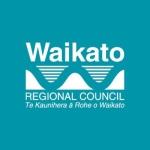Correct storage vital in ongoing effluent compliance push
The critical importance of dairy farmers having adequate effluent storage has been highlighted by preliminary results from the first of seven Waikato Regional Council helicopter monitoring flights scheduled for 2011-12.
This season’s first flight – around rural areas close to Hamilton last month – indicated one in ten farms (10 per cent) was significantly non-compliant with council permitted activity rules. Generally speaking, significant non-compliance is where effluent has entered waterways or is at high risk of doing so.
That 10 per cent score was better than the 20 per cent significant non-compliance recorded for a flight near Hamilton around the same time last year. Both flights occurred during wet winter weather.
The council’s compliance and education manager Rob Dragten said it was encouraging to see a lower percentage of significant non-compliance from the Hamilton flight this year.
“However, the most serious cases of significant non-compliance appear worse than last year which is of concern to us.”
Mr Dragten said another concerning observation during last month’s flight was that some farmers clearly had inadequate effluent storage to cope with winter milking. Milking in winter poses particular challenges for good effluent management as storage pond levels are increased by rainfall, evaporation of fluid is less and there are fewer days when effluent can be safely spread to paddocks.
“We found a number of farmers who had very full ponds and one pond was actively overflowing,” said Mr Dragten.
“If farmers are winter milking their infrastructure or effluent management practices need to be at a higher level to cope. Our advice is that farmers get good, professional advice about the right amount of storage to cope with conditions on their individual farms, storage that is appropriate for all seasons in which their farms are operating.”
Waikato Federated Farmers dairy section chair Chris Lewis also had advice for farmers: “With the very wet winter Waikato farmers have experienced - especially for the ones who have done winter milking like myself - it is a good time to reflect on your effluent holding facilities, to see whether they are compliant.
“Also, please make sure all feed pads are connected to the effluent holding pond, ensuring best practise is followed. It’s better to make the necessary plans for changes soon so they are completed in time for next winter.
“Waikato Federated Farmers would like to remind farmers we need to be compliant all the time 24/7. We have industry targets that need to be met and we want to avoid being front page news for the wrong reasons.”
DairyNZ project manager for effluent Dr Theresa Wilson said the results seen on this season’s first flight were encouraging but emphasised there was still work to do around storage of effluent in ponds.
“This summer there will be a number of workshops on pond construction and management to help farmers in their decision making. If we can help farmers get their ponds right I’d expect further good results.”
Mr Dragten said another issue apparent during the August monitoring flight was an increased use of farm races (tracks) as feed pads.
“Feed pads and stand-off pads must be properly sealed, and have effluent collection systems. Races don’t meet this standard, so using them as feed pads means that nutrients are likely to leach into groundwater. Also, effluent can flow off the race and contaminate waterways or create nitrogen hotspots in paddocks.
“Our advice is that farmers do not use races for feed pads because they are inevitably in breach of the rules, and because of the risk to the environment. Only properly designed and built stand-off pads and feed pads that are correctly sealed and that have good effluent collection systems will comply.”
